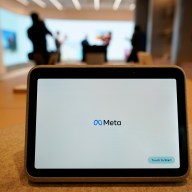Last week a plane belonging to a government-owned Libyan airline crashed, leaving a single survivor. Apart from that, business in Moammar Gadhafi’s empire is booming.
Afriqiyah Airways, which flies between Libya and cities like Rome, Paris and Amsterdam, owns 11 Airbus aircraft. The nine-year-old airline is a recent example of the ambitions of the 67-year-old colonel who has ruled Libya for the past 40 years. Gadhafi has refrained from nationalizing the oil industry — surprising, for a leftist revolutionary. Oil is Libya’s most significant natural resource and makes up 95 per cent of the country’s export earnings.
“Oil has served Libya quite well,” notes Ciszuk, a Middle East analyst with IHS Global Insight. “Libya has been very savvy in dealing with energy companies while keeping a large share for itself.”
Last year Libya had a $15,200 GDP per capita, roughly the same figure as Argentina, Russia and Chile.
But it could be much higher. That’s why, four years ago, the Libyan government formed LIA, an investment agency to invest some $40 billion in agriculture, real estate and infrastructure. One of LIA’s first moves was to invest in Dutch-Belgian bank Fortis.
All the while, Gadhafi has stayed in the spotlight by provoking the international community. In 1999, Libya arrested and later condemned to death five Bulgarian nurses for allegedly infecting Libyan children with HIV. Eight years later Libya released the nurses in exchange for $400 million.
Recently Gadhafi, who seized power in a military coup at age 27, targeted Switzerland by eliminating subsidiaries of Swiss firms in Libya, ordering two Swiss businessmen to be arrested and withdrawing his own money from Switzerland.
“Gadhafi has been really good at striking deals,” notes Ciszuk. “To get the Lockerbie bomber released from a Scottish prison last year, he put huge pressure on British oil companies. And now Libya is holding Swiss businessmen to put pressure on Switzerland. That’s not the way most countries do diplomacy, but it’s how the Libyans do it.”
















